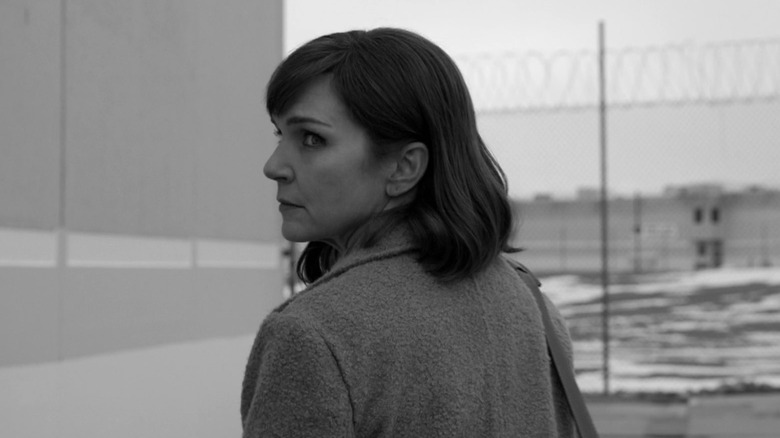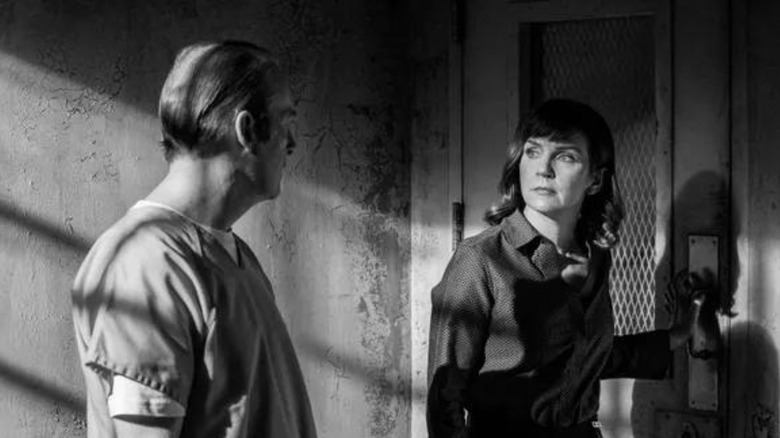Here's What Happens After The Better Call Saul Finale, According To Rhea Seehorn
To say that the series finale of "Better Call Saul" was emotional would be an understatement. After Jimmy (Bob Odenkirk) was sentenced to eighty-six years in prison for his numerous crimes, he finally gets to have a private moment with Kim (Rhea Seehorn) after not seeing her (save for in court) for six years. Mirroring their first appearance together in the first-ever episode, they stand in a visiting cell, sharing a cigarette in silence. As Kim leaves the prison, it's not entirely clear if the two former lovers will ever see each other again — the status of their relationship is completely ambiguous.
At least, that's how it was meant to be. In a post-finale interview with AMC Talk, Seehorn explained that she has her own opinions on what happens between Jimmy and Kim after that fateful reunion, giving hope to all of us that they are meant to be.
"In my opinion, that is definitely not the last time she's going to see him," she explained. "I'm still thinking about the ending and what it means. I just happen to be a hopeless romantic, so I don't know."
Just how much of a hopeless romantic is she? Well, let her explain:
"I think she's absolutely going to try to figure out how to reduce his sentence! I don't know if they're ever going to live happily ever after, but I think she loves him and I think she intends to help him, but on the up and up."
Honestly, same.
A smart ending
Of course, Seehorn isn't the episode's director and writer, Peter Gould, so her interpretation of the ending might not be strictly canon. However, she revealed that Gould wrote the final moments of the show purposefully vague so that the audience could draw their own conclusions:
"I know Peter wanted to write an ending – and he masterfully did – that, when the screen goes black, it's not just that there will be people who think one thing over the other. It is that people will continue the story in their head, that it's a story that is still on a trajectory that is going. There may be different opinions about which direction it is going, but it's such a smart ending because it really honors the larger philosophical questions that the show raises about actions and consequences and nature versus nurture and morality and unconditional love."
In short, the ending is entirely up to the audience's interpretation. Will Jimmy and Kim continue to keep a relationship, or are they heading their separate ways? Does she forgive him for everything he's dragged her into, or does she not? All of these could make sense within the framework given by the ending, and perhaps that is its ultimate strength; it trusts the audience to form their own conclusions rather than spelling them out in detail. While that might work for some shows, "Better Call Saul" always thrived on ambiguity, and thus an open-and-closed ending like "Breaking Bad" wouldn't fit it.

